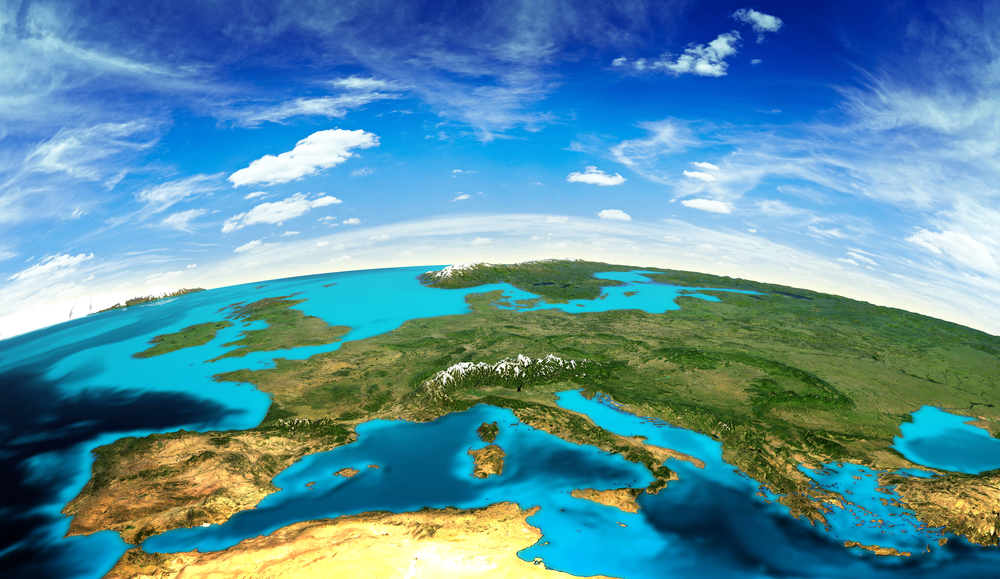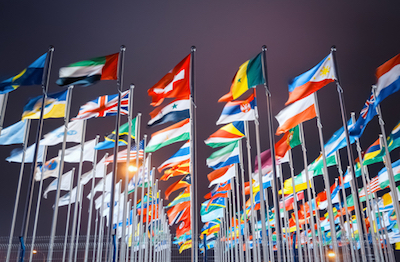Democracy and Its Discontents
By Pedro Schwartz


Democracy today receives the general assent of humanity, yet it also suffers from infirmities that make others doubt its very survival. Is democracy mainly the political expression of the principle of individual sovereignty? Or is it rather characterised by the levelling of the rights and condition of the citizens? Or must it be understood as the expression of communal and national feelings?
As regards the procedural side of political arrangements, constitutions are increasingly seen as expressions of class struggle to be set aside as soon as a new popular coalition attains power. Representative democracy, whereby citizens delegate political decisions to deputies, senators, or presidents, is considered elitist. Referenda, which should help the people make their voice heard on questions of great import, often turn into plebiscites and become instruments of confrontation or even oppression. The separation of powers, devised as a barrier to stop precipitous decisions to satisfy short term opinion, is continually side-stepped by demagogues greedy for power.
If we look at the material rather than the formal content of politics, the picture is also dismal. The welfare state, adopted by so many nations after World War II, is a dream that can easily turn into a nightmare. The belief that the state should protect individuals ‘from cradle to grave’, if taken seriously, results in infringements of individual liberty. Art and science must be protected and financed by the state. Education should be principally delivered by the public administration. Health services should be universal and free at the point of service. The ‘precautionary principle’, especially as applied in the European Union, justifies growing regulation. In sum, democracies must try to foster the happiness and well-being of the population by any means at hand or at whatever cost.
My thesis is that the only way to save democracy from the contradictions that cause so much discontent is to take individual liberty as the basic principle and re-interpret the other two elements as subordinate to the principle of individuality.
The individual and democracy
Logically speaking, democracy is a corollary of individual sovereignty. Individualists who see individual freedom as the basis of a well-ordered society will be naturally led to defend the participation of citizens in public affairs. They will want their voice to be heard and their vote to count in communal questions that affect them.
However, classical liberals face two kinds of problems in the practice of democracy. One is that political decisions always have an element of imposition that can lead to the oppression of minorities. The other is that the complexity of political mechanisms allows small groups to exploit the democratic system to their own benefit.
The step from individual private action to collective democratic decision is not an easy one. How different it is to take decisions in the private sphere from decisions in the public field was well expressed by Milton and Rose Friedman in their book Free to Choose (1980)
- The ballot box produces conformity without unanimity; the marketplace, unanimity without conformity. That is why it is so desirable to use the vote in as far as possible only for decisions where conformity is essential.
Market choices and private contracts are fundamentally different from authoritative decisions and communal agreements. In family life, in personal friendships, and in the marketplace a special kind of unanimity reigns, unanimity ‘nemine discrepante‘, when two agree and the rest abstain. This is to say, in the private field, when two persons or two firms reach a free agreement to their mutual benefit, the rest of society abstains.1 Economists since John Stuart Mill and Arthur Pigou have over-insisted on the idea that all private agreements have ‘externalities’ that must be corrected. One should follow Ronald Coase instead in saying that so-called ‘market defects’ are optimal adaptations by individuals to defects of politics and institutions. As James Buchanan has remarked, the concept of externalities assumes that some authority outside those implied in an agreement can define what the optimal outcome should be. Rather, if those implied find defects in the result they will question the institutional framework in which they function.2
The essence of politics is that the majority imposes its will on the minority in pursuance of a social objective. Classical liberal constitutions must therefore agree to entrench the respect of human rights, the defence of private property, and the performance of contracts. However, there is always a remnant of questions that demand to be agreed upon by a majority, at least in matters of justice and defence and the taxation needed to finance them. Here is the origin of the defects of public action and of the danger that majority decisions result in the oppression or exploitation of minorities, and even in a populist tyranny.
Saving democracy from itself
What is to be done? We could try to change our electoral laws. Senators and Representatives in the U.S. Congress, for example, could be subject to term limits. Frequent referenda could be tried, along Swiss lines. And while we are at it, we could also decentralise power radically as among the cantons of Switzerland. Or rewrite our constitutions to move them away from the catalogues of rights without duties they have become. And reinforce the checks and balances on executive power that used to be their essence.
I am afraid I must express scepticism regarding these reforms. All electoral laws in their diversity are imperfect and changes satisfy few people. Referenda have been a force for good in Switzerland, a bearable process in Canada, and rather unsuccessful in California. Devolution is positive when not transformed into metaphysical nationalism. Even a Constitution like that of the United States, which appears as an immoveable bulwark of liberty, has changed, sometimes for good, sometimes for ill, by the Supreme Court following the moods of public opinion. Thus, I find Buchanan’s belief in constitutional reform and constitutional limitations perhaps a little naïve.
Three forces for freedom
Democracy plods on thanks to three powerful antitoxins. First, there seem to be automatic political stabilisers at work in the system. I find it striking that the size of the state in even the most interventionist countries is pulled back to an average of 40 or 50 percent of GDP when voters find that going beyond that seriously endangers growth. While still a large proportion of our yearly production, we must be thankful for small mercies: in the long run, competition between democracies with regard to personal freedom, economic progress, and scientific prowess strikes a chord with many voters. When it becomes evident that ‘liberal’ or ‘social democratic’ policies have become an obstacle to prosperity, there frequently arise movements in favour of free market policies. Such reactions against the drift towards the ‘dormant society’ of socialism took place in Britain with Margaret Thatcher, in the United States with Ronald Reagan, in New Zealand with economics ministers Roger Douglas and Ruth Richardson, in Poland thanks to Leszek Balcerowicz, and in Sweden under Carl Bildt. But for a person of democratic convictions and free market beliefs there are another two more powerful reasons for hope: international trade and technological discoveries.
The first is free trade. In a large country such as the United States or a sizeable area such as the European Union, international trade and migration will, despite the regulators, always be a force for competition. This is even truer of small countries whose size forces them necessarily to be open to the world. In both cases, international trade will be a potent antitoxin against coalitions of rent seekers. It is only in middle sized economies with a national market large enough for established firms to prosper that interest groups with political clout will be able to hold their ground against international competition. Anti-trust will be used as a fig leaf to cover their privy parts against prying eyes. In the same way, these protectionist countries will use international aid to cover up the harm caused to developing countries by their import restrictions. This is one of the reasons why people who defend a ‘hard Brexit’ would like to see Britain leave the European Union with no more ado and open its commercial borders unilaterally to all comers.
The second reason for hope is the immense development of the digital world. The new communication technologies, big data in the cloud, the growing abundance of open information, internet manufacturing, 3D printing, and so on, seem unstoppable. The balance of Joseph Schumpeter’s creative destruction will be positive, despite the efforts of state authorities to control the internet and the people who use it.
Democracy can be learnt
I do not want to sound too pessimistic because it is an observable fact that democracy at higher stages of civilisation is less imperfect than in countries that are just beginning to learn the strange ceremonies of free speech, independent courts, private property, and respect for the dignity of individuals. I unashamedly hold it that it is better, as Karl Popper used to say, to be able to change your government without bloodshed: it is quite an advance in political mores to send your adversaries to the opposition benches rather than to shoot them at dawn, or condemn them to life imprisonment after a spate of torture. Voting is in itself a curious procedure that we have agreed to put in place of the more natural ideology expressed by the dictum that power comes out of the mouth of a gun.
For all its faults, democracy is better than other political arrangements. I would rather live in one of those rickety western commonwealths than in China or Russia, let alone Cuba. It takes a long time and much forbearance to acquire the habits of tolerance and of distaste for oppression, even of one’s political enemies. But these habits can be learnt. Experience and criticism can help countries avoid the worst blemishes of popular governance.
A precondition for the three forces I mentioned to succeed in purging democracy of its worst habits is never to cease in the effort of discovering of new ideas for progress and new arguments for liberty.
Footnotes
[1] A business deal such as the sale of a house results in the mutual benefit of the parties concerned, which in principle does not affect the rest of society. This is not to deny that such a contract has consequences for third parties, in so far as it (even if minimally) influences real estate prices. But it is a rule to be abided to, that the pecuniary effect of transactions should not be interfered with, because the information gathered in prices is necessary for the correct and rational behaviour of individuals.
[2] See James Buchanan (1984): “Rights, Efficiency, and Exchange: The Irrelevance of Transaction Cost.”
*This is a revised version of the paper I presented at the September/October Mont Pelerin Society General Meeting at Las Palmas de Gran Canaria.
Pedro Schwartz is “Rafael del Pino” Research Professor of economics at Universidad Camilo José in Madrid. A member of the Royal Academy of Moral and Political Sciences in Madrid, he is a frequent contributor to the European media on the current financial and social scene. He was a past President of the Mont Pelerin Society.
For more articles by Pedro Schwartz, see the Archive.
